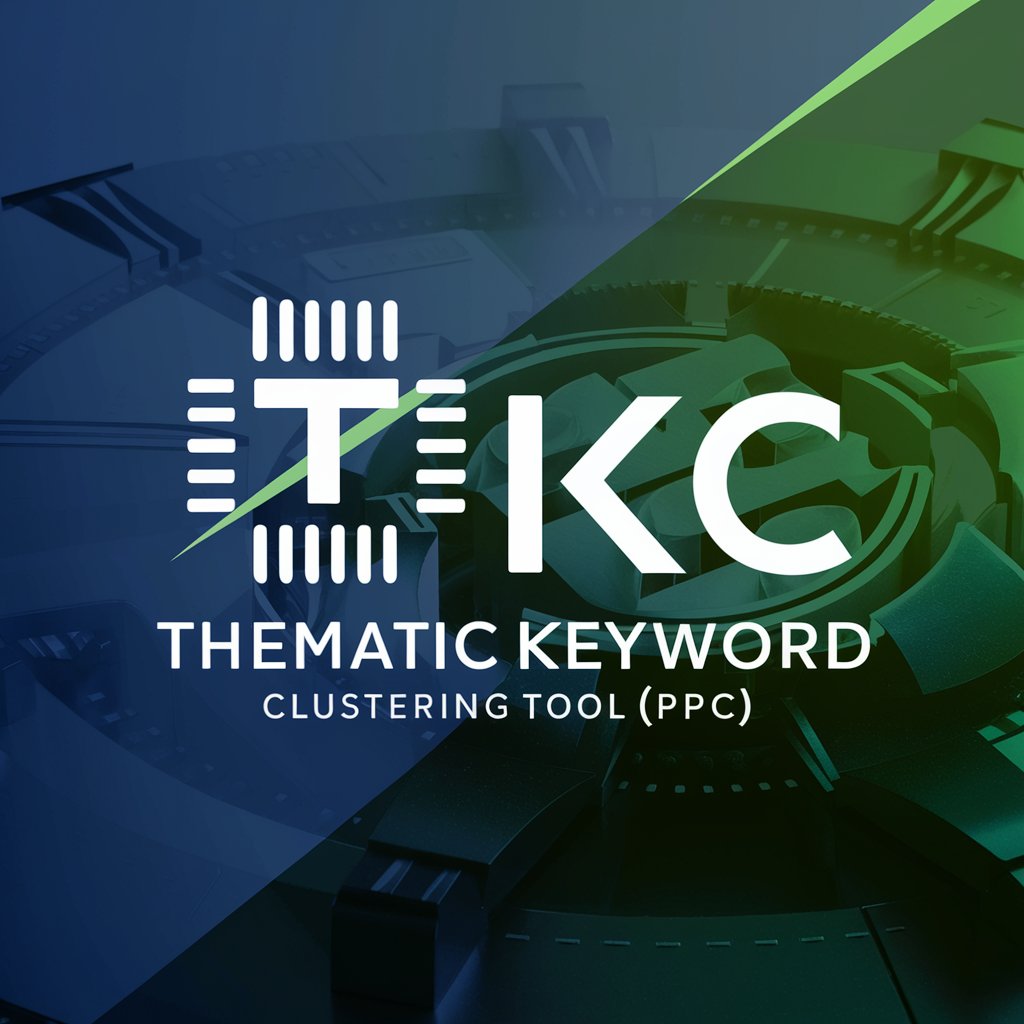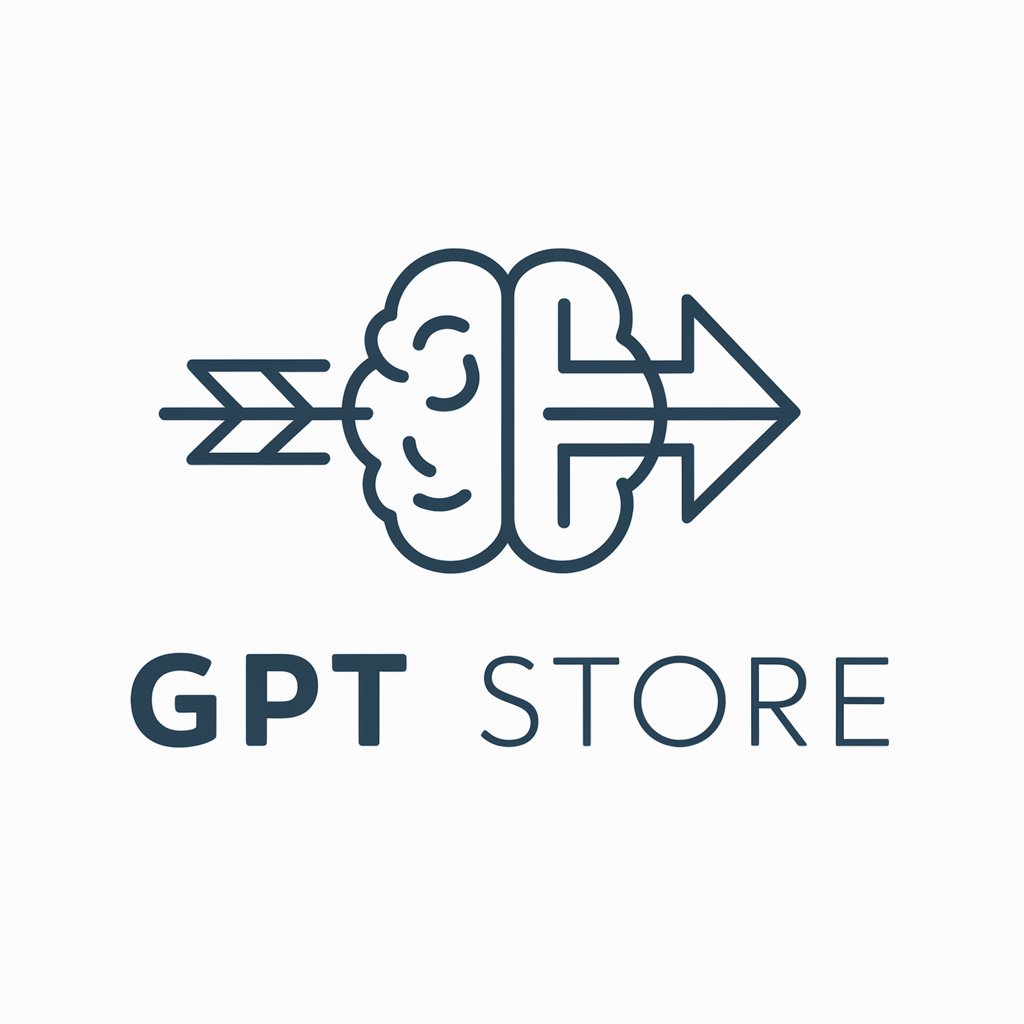
Thematic Keyword Clustering Tool (PPC) - Thematic Keyword Analysis

Welcome! Let's optimize your keyword strategy.
Optimize PPC with AI-Powered Keyword Clustering
Analyze and group these keywords:
Generate seed keywords from the following list:
Optimize the following keywords for paid search:
Provide thematic clusters for these keywords:
Get Embed Code
Overview of Thematic Keyword Clustering Tool (PPC)
The Thematic Keyword Clustering Tool (PPC) is designed to optimize keyword management and strategy for Pay-Per-Click (PPC) advertising campaigns. It leverages natural language processing techniques to analyze, group, and optimize keywords based on thematic relevance. This tool aims to identify the most representative 'seed' keywords for each group, ensuring these are broad enough to trigger related keywords while being specific enough to maintain relevance and high potential for conversion. The tool's design purpose is to streamline the creation and management of PPC campaigns, improve the targeting of ads, and maximize the return on investment by enhancing the quality of traffic and reducing wasted ad spend on poorly targeted keywords. Powered by ChatGPT-4o。

Core Functions of Thematic Keyword Clustering Tool (PPC)
Thematic Keyword Analysis and Grouping
Example
Grouping keywords such as 'organic dog food', 'natural dog treats', and 'healthy dog snacks' under a broader theme like 'Natural Dog Food'.
Scenario
In a scenario where a pet food company wants to launch a PPC campaign for its new line of organic products, the tool will analyze and cluster relevant keywords to ensure that ads are precisely targeted to interested audiences, potentially increasing click-through rates and conversion.
Identification of Seed Keywords
Example
Identifying 'organic dog food' as the seed keyword for a group including 'organic dog food brands', 'best organic dog food', and 'organic dog kibble'.
Scenario
This function is particularly useful when setting up ad groups within a PPC campaign. By identifying a seed keyword, the tool aids in structuring the campaign more efficiently, ensuring that ad groups are tightly themed and more likely to trigger relevant ads for user queries.
Optimization for Paid Search Platforms
Example
Optimizing the keyword 'luxury watches online' by analyzing search volume, competition, and relevance to ensure it effectively targets the intended audience on platforms like Google Ads.
Scenario
For an online luxury watch retailer, the tool not only groups keywords but also ensures the chosen seed keywords have a balance of high search volume and manageable competition. This optimization helps in bidding strategies, ensuring the retailer's ads appear for relevant searches without overspending.
Ideal User Groups for Thematic Keyword Clustering Tool (PPC)
Digital Marketing Professionals
These individuals can leverage the tool to enhance the structure and performance of their PPC campaigns. The tool's ability to cluster keywords thematically and identify optimal seed keywords helps in creating more targeted ad groups, potentially improving ad relevance, Quality Score, and click-through rates.
Small Business Owners
For those managing their own PPC campaigns, this tool simplifies the complex task of keyword research and grouping. It helps in identifying the most effective keywords to bid on, ensuring that their limited advertising budget is spent on terms most likely to result in conversions.
SEO and Content Strategists
Although primarily designed for PPC, the insights from the thematic keyword clustering can also inform SEO and content strategies. By understanding how different keywords cluster around certain themes, strategists can optimize website content to target these clusters, improving organic search visibility alongside paid efforts.

How to Use the Thematic Keyword Clustering Tool (PPC)
Start Your Free Trial
Access the tool directly by navigating to yeschat.ai. Enjoy a hassle-free start with no need for a login or subscription to ChatGPT Plus.
Input Your Keywords
Enter your list of keywords into the designated input field. You can input keywords related to any topic, industry, or interest for analysis.
Analyze Keywords
Initiate the analysis process. The tool employs advanced natural language processing techniques to cluster your keywords based on thematic relevance.
Review Thematic Groups
Examine the generated thematic groups. Each group will be represented by a seed keyword, which is identified based on its broad relevance and potential for PPC optimization.
Refine and Optimize
Use the insights provided to refine your keyword strategy. Adjust your keyword list or thematic groups as needed for more targeted PPC campaigns.
Try other advanced and practical GPTs
Lotto Winner Simulator
Navigate wealth with AI-powered whimsy.

Annie Besant Voice
Empowering Insights from a Historical Perspective

Slice Seeker
Discover Unique Pizza By the Slice

Sustainable Development Goals Project Builder
Empower learning with AI-driven SDG projects

Sales Development Representative
Revolutionizing Sales with AI-Powered Automation

Personal Brand Builder
Empowering your personal brand with AI

Boxer Codex Scholar
Decoding History with AI

Project Manager Assistant
Streamlining Creativity with AI Efficiency

AskTudor
Unleashing financial wisdom with AI

GPT Store
Explore AI, Enhance Workflows

Oil Painter
Reviving Artistic Heritage with AI

SQL Wizard
Empower your SQL with AI

Frequently Asked Questions about Thematic Keyword Clustering Tool (PPC)
What is a seed keyword, and how is it determined?
A seed keyword is the most representative term within a thematic group, chosen for its broad relevance and potential in PPC campaigns. It's determined using an analysis of keyword similarities, search volume, and competition.
Can I use this tool for non-English keywords?
Yes, the tool supports analysis of keywords in multiple languages, utilizing advanced NLP techniques to accurately cluster keywords based on thematic relevance, regardless of language.
How does thematic keyword clustering benefit PPC campaigns?
By grouping keywords thematically, advertisers can create more targeted ad groups, improve ad relevance, and potentially increase Quality Score in platforms like Google Ads, leading to lower costs and higher conversion rates.
Is it possible to adjust the thematic groups generated by the tool?
Yes, users have the flexibility to refine thematic groups by adding or removing keywords. This iterative process allows for more precise targeting and optimization of PPC campaigns.
How does the tool handle very niche or specialized keywords?
The tool is designed to analyze keywords across a wide range of topics and industries. It uses sophisticated NLP algorithms to ensure that even niche or specialized keywords are accurately clustered based on their thematic relevance.